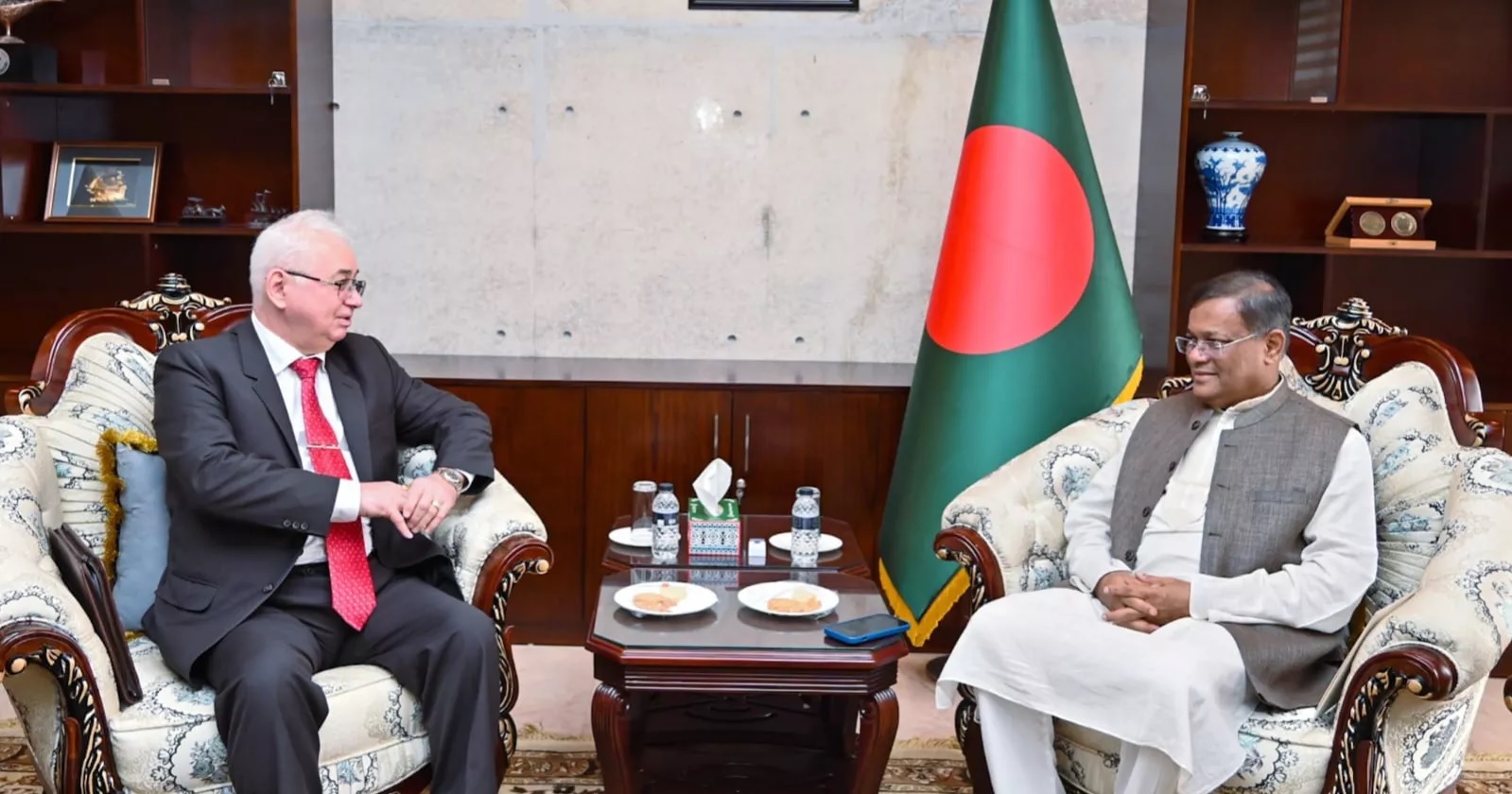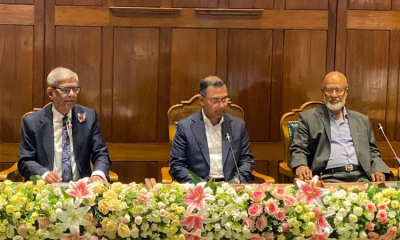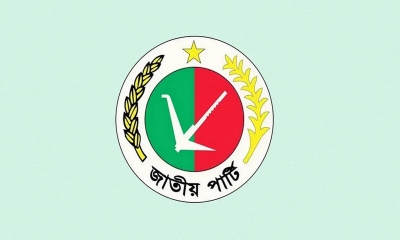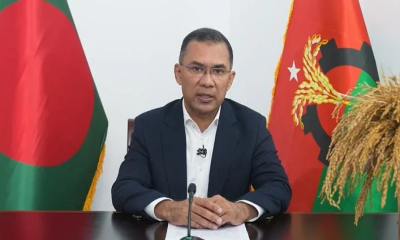Bangladesh and Russia on Wednesday expressed willingness to expand economic ties exploring potential areas and deepen the relations on all fronts.
Foreign Minister Dr Hasan Mahmud discussed the issues when Russian Ambassador to Bangladesh Alexander Mantytsky met him at his official at the Ministry of Foreign Affairs.
“We have discussed ways to expand the trade basket and more Russian investment in Bangladesh,” Hasan told reporters after the meeting.
The foreign minister recalled the role of Russia during the War of Liberation in 1971 and its support in Bangladesh’s rebuilding efforts.
During the War of Independence of Bangladesh, the Union of the Soviet Socialist Republic (USSR) stood beside Bangladesh and thwarted international pressures and obstacles in the path to the creation of Bangladesh.
The Soviet Union was also among the first few countries to recognise the newly independent Bangladesh on January 25, 1972.
Immediately after the independence of Bangladesh, the USSR extended all-out support to the reconstruction efforts of the war-ravaged country. It also provided its valuable support to Bangladesh in acquiring international recognition and eventually joining the United Nations.
Hasan said the two sides discussed some of the MoUs that are pending and laid emphasis on expediting the MoU on Information and Communication Technology cooperation between the two countries.
Asked about trade on the Russian currency, he said, “If we can do it with a number of countries, our dependency on some particular currency will lessen. It is not just Russia, with any country. It will be supportive for our economy.”
Talking to reporters, the Russian ambassador said they discussed cooperation in the areas of political, economic, technical; cultural and science. “We had a very fruitful discussion.”
He said the two countries are also working in the areas of energy and food security.
The Russian Ambassador has categorically dismissed the allegations made by Bangladesh Nationalist Party (BNP), affirming on Wednesday that the government under Prime Minister Sheikh Hasina was democratically elected by the citizens of Bangladesh.
“I can understand that the choice was made by your people. We do not interfere in the political affairs of any country, especially the friendly country of Bangladesh. It is some kind of misleading information or false information. Do not believe it,” he said, adding that over 41 percent of voters did cast their votes in the January 7 national election.
This statement came in response to a journalist’s inquiry about the BNP Standing Committee member Gayeshwar Chandra Roy’s claim.
Gayeshwar had stated that the current government was not chosen by the Bangladeshi people but was instead “installed by foreign powers,” specifically naming India, China, and Russia.
The Russian Ambassador emphasized that a significant 41 percent of the electorate participated in the last national election. He further asserted that Russia maintains a policy of non-interference in the internal affairs of other nations.
Responding to a question, the Foreign Minister said around 80 diplomats stationed in Dhaka including diplomats from important countries were present to see the opening session of the new parliament on Tuesday. “What does it mean? As journalists, you can translate its meaning better.”
On Sunday, the Foreign Minister said the current government is a “people’s government elected by their votes.”
“It is a government elected by the people of Bangladesh,” he said when a reporter drew his attention to BNP’s remarks regarding the government led by Prime Minister Sheikh Hasina.
The Foreign Minister also highlighted Bangladesh’s foreign policy ethos of “friendship to all, malice towards none,” underscoring the nation’s strong diplomatic ties globally, excluding Israel.
“We maintain excellent relationships with major world powers including India, China, Russia, the US, UK, and the European Union, and enjoy good relations with all countries,” he added, further reinforcing the government’s international standing.
Responding to a question on US sanctions, the Russian ambassador said they do not recognize unilateral sanctions imposed by the western countries including the US.












-20260217073221.webp)




-20260216115008.webp)















